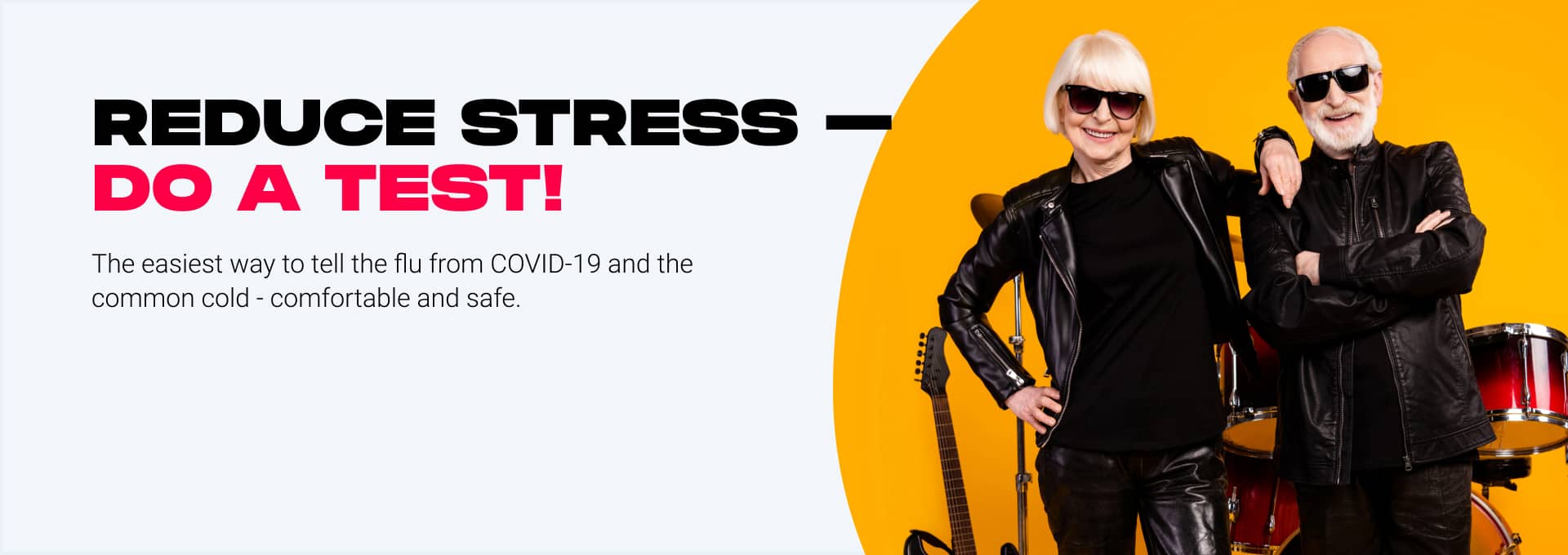Where to buy?
Choose a convenient way to buy.
ORDER on tabletki.ua
ORDER on liki24.com
ORDER on compendium.com.ua

Risk groups for severe influenza: who are at risk

Grandma and grandpa don't want to get sick. Take care of their safety!
Сoronavirus infection is often compared to the flu for a reason. This virus is more familiar to us, although it is constantly changing, forming new strains and "breaking through" acquired immunity, sometimes causing serious complications. Among them, the most common is lung damage, although with influenza it has a different nature than the damages caused by the SARS-CoV-2 virus.
There is something else in common: risk groups. In most cases (with the exception of the increased risk for young children with influenza), older people suffer, as well as everyone, regardless of age, in the presence of chronic diseases.
There is something else in common: risk groups. In most cases (with the exception of the increased risk for young children with influenza), older people suffer, as well as everyone, regardless of age, in the presence of chronic diseases.
Here are the categories of people by age and health characteristics who are at most risk when infected with the influenza virus:
- pregnant women
- overweight and obese people
- people who have diabetes (and even if it is subcompensated, that is, the sugar level is maintained close to normal, the risk is still increased)
- people with chronic obstructive pulmonary disease, other lung diseases, and bronchial asthma
- people suffering from other diseases of cachexia (exhaustion of the body and weight loss)
- people with most of cardiovascular diseases, arterial hypertension
- patients with immunodeficiency conditions of any origin (for example, congenital immunodeficiencies or AIDS)
Influenza with complications: risk group
A separate risk group for severe influenza or the development of complications includes children under two years of age. For children 3-5 years old, influenza is also considered a dangerous disease, but during this period the risk of severe course, complications or death is much lower than for an earlier age.
In most cases, complications are developed in the form of pneumonia, mainly due to the development of a bacterial infection. Among the less severe common complications (link to the article "Why the flu is dangerous: severe course and complications"), but still quite serious, are sinusitis and otitis.
Exacerbations of chronic diseases against the background of influenza can be extremely severe, especially for cardiovascular diseases, diabetes, and bronchial asthma.
In most cases, complications are developed in the form of pneumonia, mainly due to the development of a bacterial infection. Among the less severe common complications (link to the article "Why the flu is dangerous: severe course and complications"), but still quite serious, are sinusitis and otitis.
Exacerbations of chronic diseases against the background of influenza can be extremely severe, especially for cardiovascular diseases, diabetes, and bronchial asthma.
Why it is important to know which virus caused the disease
With symptoms of SARS, one of the issues which is most often to be confirmed: either it is a common respiratory viral infection caused by many viruses (not the flu) and which we usually call a cold; or is it the flu; or coronavirus infection.
As for a cold caused by one of the hundreds of common viruses, it is unpleasant, contagious, but in many cases not as serious or scary as flu or covid. Of course, some people have a hard time with colds, have complications in the form of bronchitis or sinusitis, but there is usually no threat to life - neither for children, nor for older people.
Another thing is the flu or COVID-19. They have similar symptoms, are fraught with severe course or serious consequences for those at risk. If a teenager is sick with the flu or covid, it is highly likely that the illness will pass easily. If he infects his grandparents, because he goes to visit them with symptoms of the disease - for the elderly, such a visit may end in a hospital bed. In addition, influenza and COVID-19 require different approaches to treatment, so it is important to know which virus caused the disease.
How to distinguish them at home and quickly? 15 minutes - and a kit for rapid testing for antigens for coronavirus and influenza A/B Milistan Combi Nasal Rapid Test answers three questions: is it covid? is it the flu? Or the common cold? After all, if the result is negative in the strips with the results for covid and flu, it means that you just caught a cold. Of course, you should not hug everyone or go to pay a visit sneezing around. If the result is positive for either of the two viruses - influenza A/B or SARS-CoV-2 - you should minimize all contacts, especially with those who belong to the risk group.
As for a cold caused by one of the hundreds of common viruses, it is unpleasant, contagious, but in many cases not as serious or scary as flu or covid. Of course, some people have a hard time with colds, have complications in the form of bronchitis or sinusitis, but there is usually no threat to life - neither for children, nor for older people.
Another thing is the flu or COVID-19. They have similar symptoms, are fraught with severe course or serious consequences for those at risk. If a teenager is sick with the flu or covid, it is highly likely that the illness will pass easily. If he infects his grandparents, because he goes to visit them with symptoms of the disease - for the elderly, such a visit may end in a hospital bed. In addition, influenza and COVID-19 require different approaches to treatment, so it is important to know which virus caused the disease.
How to distinguish them at home and quickly? 15 minutes - and a kit for rapid testing for antigens for coronavirus and influenza A/B Milistan Combi Nasal Rapid Test answers three questions: is it covid? is it the flu? Or the common cold? After all, if the result is negative in the strips with the results for covid and flu, it means that you just caught a cold. Of course, you should not hug everyone or go to pay a visit sneezing around. If the result is positive for either of the two viruses - influenza A/B or SARS-CoV-2 - you should minimize all contacts, especially with those who belong to the risk group.




Eng

READ ARTICLES ABOUT COVID-19
WHILE YOU’re WAITING FOR THE RESULT -




A modern mom needs a quick answer to the question of how...
COVID-19, like the flu, is an acute respiratory viral infection. Like the flu, before...
Read
Я вакцинувався, щоб не ризикувати і не наражати...
Do the test - do not waste time. Start on time...
Read
Grandma and grandpa don't want to get sick. Take care of them...
You may not have known this, but the flu is often asymptomatic. In the analysis...
Read
Coronavirus infection is often compared to the flu for a reason. This virus is more for us...
Mili Healthcare Ltd. Great Britain
Official representative in Ukraine
Official representative in Ukraine
BS5, 33B T. Shevchenko boulevard,
Shevchenkivsky district, Kyiv, 01032 Ukraine
Shevchenkivsky district, Kyiv, 01032 Ukraine
Before use, consult a doctor and read the instructions.
Advertisement for a medical device. Before use, read the instructions and consult your doctor. Certificate No. PP.372-21
Advertisement for a medical device. Before use, read the instructions and consult your doctor. Certificate No. PP.372-21
Copyright © Mili Healthcare Ltd. Great Britain
Self-medication can be harmful to your health



Feedback










